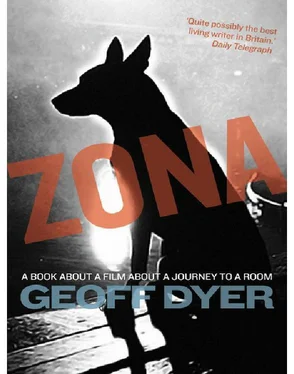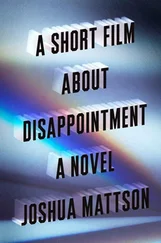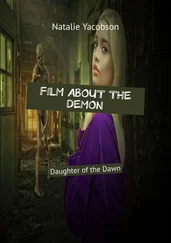On the very last page of the postscript to The Varieties of Religious Experience, William James writes of people’s willingness to stake everything on the chance of salvation. Chance makes the difference, says James, between ‘a life of which the keynote is resignation and a life of which the keynote is hope.’ Again the impossible paradox of Stalker’s relationship to the Zone makes itself felt. The keynote of his life is hope, but the Zone will let through only those who have lost all hope. Stalkers, we learn later, are forbidden entry to the Room. Forbidden, perhaps, by virtue of their belief — their hope — in it.
This speech of Stalker’s has had an effect on Professor, who is all too ready to resign himself to a life whose keynote is resignation. He’s decided to call it a day. If they reached the point of no return surprisingly quickly it’s even more surprising to find that one of them has already reached the point of giving up. Sometimes the two are one and the same; the usual difference is that there’s only one point of no return whereas the point of giving up is constant — the opposite of a point, in fact — and can be yielded to at any and every step of the way. You go ahead and I’ll wait here, says Professor. Given the awesome publicity generated by the Zone — a place where all your holiday hopes will come true! — Stalker has not proved himself to be a very successful tour operator. Or perhaps he’s had the misfortune of lumbering himself with two extremely hard-to-please clients. Either way, both of them have pretty well lost faith and interest in the promised package. (In holiday terms the weather is pretty dismal, would probably have been much better in the first-choice destination, Tajikistan.) Writer seems game to go on even if he is scarcely ecstatic about the prospect, but Professor wants to sit here in this nice little picnic spot with his thermos and his coffee and wait for them on the way back. Unfortunately that’s not possible. You don’t come back the way you go. (So even if you want to give up you have to keep going; the Zone is nothing if not lifelike.) The only option is for them all to return imme-diately. Stalker will offer them a refund minus a certain amount for his trouble (strain on his marriage, getting shot at, wet feet and so on). Reluctantly, Professor gets to his feet. Go on then, he says, resigning himself to having to live in hope for a bit longer. Throw your nuts. Stalker does so and they tramp off, screen left. There is the call of cuckoos. The camera stays behind, raises itself up slightly so that, above the mist, we can see the Room, the ruined house, which at this moment — the moment when it has become, depending on your point of view, either impossibly far away or barely worth visiting — seems nearer than ever.
1There’s a wonderful moment in Tempo di Viaggio, the documentary Tarkovsky made about his time in Italy, researching what would become Nostalghia with scriptwriter Tonino Guerra. The two of them are sitting there, chatting. The phone rings and Guerra answers: ‘Si… Oh, Michelangelo…’ Antonioni has called up for a chat! It’s the twentieth-century, cinematic equivalent of those entries in the Goncourts’ Journals: ‘A ring at the door. It was Flaubert.’
2Tarkovsky constantly reiterated his admiration for and love of these two, especially Bresson, with whom he shared a special Grand Prix du cinéma de création (for Nostalghia and L’Argent respectively) announced by Orson Welles, in Cannes, in 1983. Quite a trio. Bresson declines to give any kind of acceptance speech, Tarkovsky shrugs and says ‘Merci beaucoup’; neither behaves with any graciousness. Maybe both are a little miffed at having to share the honour with the other.
3Tarkovsky’s wife, Larissa, wanted this part and the director-husband was eager to give her the role. He was persuaded to drop her in favour of Alisa Freindlikh by other crew members, chief among them Georgi Rerberg, director of photography on Stalker —initially — and Tarkovsky’s previous film, Mirror. In making an enemy of Larissa, the seeds were perhaps sown for Rerberg’s later leaving the film.
4And the Gulag, let’s not forget, has its own allure and semiromantic mythology. On a couple of occasions, in Paris, I have attended dinners where the guests included men who had been ‘in the camps’. Both had about them the quality of election by experience, were assumed to be in possession of a truth about the toll exacted by the mere fact of being alive — of being born in a certain place at a certain time — in the twentieth century. They had been tested. Something had been revealed or vouchsafed them that was simultaneously beyond comprehension and quite routine. Both of them joked compulsively and had no desire to enter the serious political debates that often raged around the dinner table and which I could not participate in — or even follow — because my French was so poor, but I do remember thinking, when one of the women said that she and her husband were going to have a poster of Lenin above their bed, that that was something so ridiculous, so preposterously French, it might have been a quote from a Godard film, one of the ones he made after Sympathy for the Devil with the Rolling Stones, an experience that led Mick Jagger to remark of the great auteur, ‘He’s such a fucking twat.’
5Cf. the second resurrection of Hari, in Solaris, coming back to life, so to speak, in a see-through shorty nightie after drinking liquid oxygen.
6Printed in the Observer alongside a review by the film critic Philip French, a still from this sequence was actually one of the things that persuaded my friend Russell and me to see the film in the first place. When I was a boy, growing up in Cheltenham, stills were displayed outside the ABC, the Coliseum and the Odeon as a way of luring you in and it was always a significant moment when you saw the still image in motion. (The ABC and the Coliseum are long gone and the Odeon is now derelict, though I still think of it as the Odeon, just as my parents always referred to it and the ABC by their earlier incarnations and names — the Gaumont and the Regal respectively— thereby suggesting that these places were the sites of some kind of mythic prehistory, an impression heightened by the fact that I saw the film adaptation of Erich von Däniken’s Chariots of the Gods in one of them.) It confirmed that you were within the experience advertised outside, even though it was almost impossible to pin down the precise moment when the still was taken (we didn’t realize, back then, that a still was not a frame lifted from the flow of images, but a different, independent entity), or at least the slight lag between ‘seeing’ the still and recognizing it as such meant that it had morphed into a slightly different image. A still, it seemed, was not still at all, more like the aftermath of a more specific but still elusive tingle of déjà vu.
7In interviews Tarkovsky often strikes one as a bit priggish but there are occasional touches of comedy in his films. One of them— Nostalghia —contains a terrific joke. A man comes across another man, apparently drowning in a slimy pond. He pulls him out, saves him, whereupon the rescued man says, ‘What are you doing? I live here.’ I guess that’s what is meant by Nostalghia. Is this joke about Tarkovsky looking back at his time in the slimy pond of the Soviet Union? Having got out of it, having freed himself from the stifling restrictions of its filmmaking institutions and processes, he now looks back on it quite fondly. My favourite comic moment, however, is in Tempo di viaggio, when Tarkovsky and Tonino Guerra are scouting locations. They arrive in Lecce by car and the great director gets out wearing a pale yellow T-shirt and the shortest, cutest, tightest little pair of white shorts imaginable. He looks like he’s flown straight in from the Castro Street Fair!
Читать дальше












